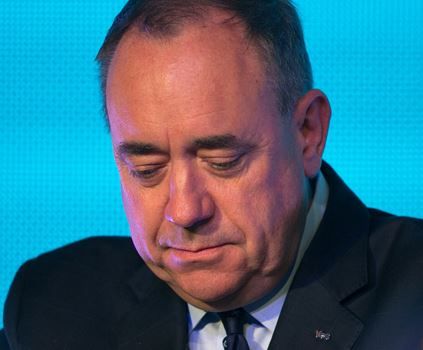When it became clear on Friday that Scotland had voted to reject independence, shares on the London Stock Exchange rose 18 points (0.27%) to 6837.92, while the pound surged to record highs against the euro and dollar, but then fell back later in the day.
The pound sterling had been declining during the two-week period leading up to the Scottish vote, as investors feared a “Yes” vote might destabilize the UK economy. As it became clear on Thursday night and Friday morning this was not going to happen, sterling recovered all its recent losses.
However, by the end of Friday the pound was 0.48% down against the dollar, but remained 0.2% up against the euro.
A number of Scotland-based companies that had threatened to move into England had the referendum result gone the other way, have announced that now they are staying put.
The Royal Bank of Scotland (RBS) wrote on its website yesterday “That contingency plan (to move south) is no longer required. Following the (referendum) result it is business as usual for all our customers across the UK and RBS.” RBS shares were up by 2.6% on Friday.
Edinburgh-based Lloyds Banking Group said it’s head office will stay where it is. Lloyds shares climbed 2% on Friday.
John Cridland, General Secretary of the Confederation of British Industry (CBI) described Friday as a momentous day for the UK, adding that the result of the vote would be greeted with a collective sigh of relief in the business community across the nation.
Alex Salmond, First Minister of Scotland, announcing his resignation on Friday. He led the independence movement.
Mr. Cridland said:
“Business has always believed that the Union is best for creating jobs, raising growth and improving living standards, and welcomes that the people of Scotland want to play an integral role in this internationally successful partnership.”
Simon Walker, Director General of the Institute of Directors, a UK organization that sets the standards for company directors, said the whole country breathed a sigh of relief in the knowledge that the nightmare of a contentious currency debate and prolonged economic negotiations was avoided.
Mr. Walker said:
“The main party leaders have made clear their intention to devolve further power to the Scottish Parliament, and over time this will give the people of Scotland more of a say over how to manage their economy. As negotiations commence on a future settlement for Scotland, the focus must be on ensuring that any new powers are used to boost Scotland’s economic competitiveness, unleash enterprise and attract further investment.”
English, Welsh, Scottish, & N. Irish Parliaments?
General public and business people’s attention will now turn to the constitutional overhaul that Prime Minister David Cameron plus the leaders of the other main parties promised before the referendum, and reiterated on Friday.
Matters to do with the constitution may not at first glance seem related to business concerns, but they are. If the UK becomes more of a federal state, with powers devolved to its four countries, businesses will want to know.
If Scotland has a parliament with greater power, then the people in England, Wales and Northern Ireland are going to expect the same. There may eventually be four regional Parliaments within the UK, with each one setting taxes and business policies.
What did The Queen say?
Queen Elizabeth II kept quiet throughout the lead up to the referendum. All she said was that it is “a matter for the people of Scotland,” and that she hoped people would “think very carefully” before casting their vote. Even her husband, the Duke of Edinburgh of all places, kept quiet.
Queen Elizabeth II and Alex Salmond, First Minister of Scotland and leader of the Scottish independence movement.
Following the result, the Queen wrote:
“After many months of discussion, debate, and careful thought, we now know the outcome of the Referendum, and it is a result that all of us throughout the United Kingdom will respect.”
“For many in Scotland and elsewhere today, there will be strong feelings and contrasting emotions – among family, friends and neighbors. That, of course, is the nature of the robust democratic tradition we enjoy in this country. But I have no doubt that these emotions will be tempered by an understanding of the feelings of others.”
“Now, as we move forward, we should remember that despite the range of views that have been expressed, we have in common an enduring love of Scotland, which is one of the things that helps to unite us all. Knowing the people of Scotland as I do, I have no doubt that Scots, like others throughout the United Kingdom, are able to express strongly-held opinions before coming together again in a spirit of mutual respect and support, to work constructively for the future of Scotland and indeed all parts of this country.”
“My family and I will do all we can to help and support you in this important task.”



